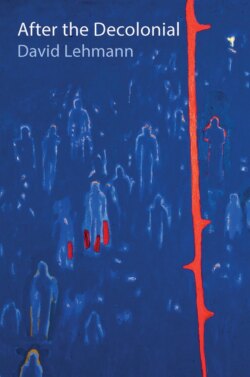Читать книгу After the Decolonial - David Lehmann - Страница 16
Evangelical Christianity
ОглавлениеAlthough this popular-erudite dialectic offers a neat framework, spanning the supernatural and also the world of art, music and culture in general, the epidemiological – indeed pandemic – spread of evangelical Christianity has produced a large and noisy culture area where it does not apply. The same goes for the decolonial, whose reification and exaltation of indigenous culture and knowledge loses some of its credibility in the face of the success of evangelicals among indigenous peoples. For a century, the churches have built cultural worlds where indigenous religious practices, but not indigenous identities or languages, have lost their resonance (save as channels of demonic possession), and where political demands for indigenous rights receive little encouragement. The evangelical, or Pentecostal, faithful, with their rituals of healing and baptism, consummate a rupture with both the Catholic popular culture of fiestas and commemorative processions and the affirmation of class and ethnic difference in carnivals, dance and music, while also rejecting the permissive society and, more recently, departures from traditional forms of marriage and gender roles. The ideal evangelical life requires withdrawal from civic and religious fiestas, at least in principle, renunciation of alcohol and tobacco, and embodies an aspiration to middle-class respectability. In a pattern that invites comparison with social movements, with education and with the professions, women are a driving force in their ranks, though rarely in the leadership. Participation in church life also encourages women to bring about change in their families and to strive for entrepreneurial success.
Evangelical culture seems to stand at the antipodes of what the decolonial might conceive as a politics in its image. Why have a following who could be expected to pursue liberation from colonial oppression, being predominantly drawn from low-income groups and from excluded racial and ethnic populations, joined the churches in such great numbers? How could they have placed their trust in preachers who show no interest in the structures that oppress them or in the racism that excludes them? How can they accept a doctrine that invokes divine authority in teaching self-reliance and legitimizes the neo-liberalism responsible for their oppression? How could it be that Pentecostal churches persuade not only indigenous people who live in the market economy and under the direct authority of modern state apparatuses but also others (in remote highland and lowland tropical environments), who have had but limited contact with states or with the hegemonic languages, to engage in practices that appear to glorify a divinity utterly foreign to their own traditions? How could they retain a predominantly female following while for the most part excluding women from positions of leadership? These questions become even more urgent when we come to neo-Pentecostal churches, with their highly centralized global organizations, their proclamation of material well-being as an end in itself and their disruptive intervention in electoral politics.
Pentecostalism is not a comfortable sort of dissidence, but it is a dissidence in several senses: it is a religious dissidence which stands apart from a still hegemonic Catholicism; it is a cultural dissidence that stands against the permissive society and against intellectual elites, and against those elements of popular culture that draw on tradition, on indigeneity, on African heritage and on rituals of ‘the world turned upside down’ like carnival. It cannot be dismissed merely as false consciousness, as an artefact of neo-liberalism or as a money-making machine.
Interpreting Pentecostalism requires a compromise between the evidence of many shared characteristics within and between countries and cultures across the globe, especially the style of meetings and the ethical content of preaching, and innumerable local variations in scale and in class and ethnic composition. Explanations in terms of the power of neo-liberalism and its mediatic allies to intoxicate the minds of the illiterate masses may be criticized as expressions of patronizing intellectual arrogance, but there is plenty of evidence that certain sorts of churches – mainly neo-Pentecostals – are collecting incalculable amounts of money from followers in response to promises of health and wealth and a life free from demonic powers. Is this evidence of a partnership between the churches and neo-liberalism? And how do we interpret some pastors’ collusion with the drug traffic as well as supposed addiction recovery? Evangelical politics have veered sharply to the right in Colombia and Brazil, while church leaders have successfully pursued political careers on the back of appeals to family values and a fierce denunciation of permissiveness and non-traditional sexualities, paving the way for the (very narrow) defeat of the consultative peace referendum in Colombia in 2017 and the large second-round majority of a fiercely illiberal president in Brazil in 2018. And yet Pentecostalism also retains many features of religion as we conventionally conceive of it: many local church leaders (the ones who do not pursue wealth and power) regard such extravagances with contempt, and there are also innumerable churches where prayer is an act performed for its own sake, rather than as a plea for a windfall or for help in finding a suitable life partner.
Pentecostalism has for long raised many questions for ready-made models in the interpretation of Latin American culture, and the recent aggressive political turn associated with neo-Pentecostalism has been an additional shock, both practical and intellectual, to those models, whether modernist, postmodernist or decolonial.
